Fritextsökning
Artiklar per år
Innehållstyper
-

Why the world renown researcher Marc Tessier-Lavigne resigns as Stanford´s president
In mid-summer, neuroscientist Marc Tessier-Lavigne announced his resignation as President of Stanford following allegations of manipulated study data. According to the reporter Theo Baker, who first reported the story, Tessier-Lavigne “rewarded the winners and punished the losers”. Here is the background of the story which has shaken the American scientific community over the summer.
-

Alligator, Tataa, Ilya: Så valde bolagen sina namn – del 1
Att namnge ett företag kräver strategi, långsiktighet, juridiska kollar – och gärna ett mått av originalitet. Här är fem bolag inom life science med namn som sticker ut, och historierna bakom dem. Inom kort presenterar vi ytterligare fem.
-

“An entire industry is about to be wiped out”
According to Jennie Ekbeck, CEO of Umeå Biotech Incubators, Sweden risks not having any small diagnostic companies left in five years.
-

How critical are the “Spermageddon” reports? – Researchers call for action
A much talked about meta-study indicates that sperm concentration in men’s seminal fluid has halved in 40 years. Experts in andrology that Life Science Sweden speaks to believe that the results must be taken seriously, and call for action from the Swedish authorities.
-

“Photon counting in computed tomography is the holy grail”
Erik Fredenberg, a researcher in physics at KTH and GE, is working to implement photon-counting CT in clinics. To shorten lead times and reduce the radiation dose in patients, he is setting out to develop a framework for virtual clinical trials for the technology.
-

Great Swedish innovations: Eye treatment became a feather in Pharmacia’s cap
From complicated and sometimes risky surgery to a routine procedure. Pharmacia’s injectable Healon revolutionised the field of eye surgery - and is considered by us one of the most important contemporary Swedish innovations in the field of medicine.
-

Neanderthal genes and Nobel Prize in a popular lecture at Bioscience
An inherited gene variant from our ”evolutionary cousins” – the extinct Neanderthals – may affect how our bodies break down certain drugs. “It’s only a matter of time before we actively start screening for it,” said KI researcher Hugo Zeberg when describing the study at Bioscience 2022.
-
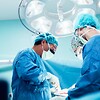
“We need to build flexible operating theatres”
Flexible operating theatres, micro-sensors on surgeons to monitor their well-being and 3D images projected onto organs to be operated on. These are a few ideas that three specialist surgeons are suggesting for the operating theatre of the future.
-

Biosimilars bring price pressure, but are they sufficiently used?
When biosimilars were introduced just over 16 years ago, hopes were raised that they would give many more patients access to effective but otherwise extremely expensive treatments with biological drugs. So, how well has Swedish healthcare used biosimilars? The answer partly depends on whom you ask.
-
Business Sweden’s new team is rolling out the blue-yellow carpet
According to Business Sweden’s life science team, the combination of substantial medical know-how and an ever-flourishing tech sector is a success factor for Sweden. “It’s a perfect storm, a beneficent, perfect storm,” says Programme Manager Britta Stenson.
-

The route to vaccines for everyone: “We did not just sit around and wait”
The pandemic was in full swing, and no one knew when or even if a vaccine would come. At that point, the Swedish Minister of Social Affairs called with a proposal, and Richard Bergström did not hesitate. “I already had a notion that this would work,” he says in an interview with Life Science Sweden.
-
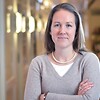
Column: Why there cannot be a complete cure for cancer – but there is certainly another way!
"Is there a new way we need to be thinking about how to prevent cancer?" Lucy Robertshaw reflects upon which is the smartest way to beat cancer.
-
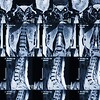
Medtechföretag anklagas för bluff
Blankarbolag sågar medicinteknikbolaget Nano X Imaging.
-
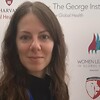
Giulia Gaudenzi: ”Key lessons from global health research”
The world will still face major challenges in the post Covid-19 pandemic, writes Giulia Gaudenzi at the KTH Division of Nanobiotechnology at Scilifelab, in a column.
-

Femte förslaget till regeringen från SwedenBio
Skärp målsättningen för deltagandet i EU:s ramprogram. Det är SwedenBios femte förslag inför den kommande forskningspropositionen.
-
"Djupinlärning är inte magi"
Det är inte magi men det handlar om mer än att kunna känna igen katter på internet, säger Peter Kasson vid Uppsala universitet. Han använder deep learning i sin forskning och kan på så sätt göra betydligt kraftfullare förutsägelser men från mycket enklare indata.
-
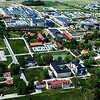
Miljardinvesteringar och plantskola för 1000 bolag
UIC, Uppsala Innovation Centre, firar 20 år i år. Totalt har 1 011 startups och tillväxtföretag har fått stöd och de sammanlagda finansieringarna ligger på över 4 miljarder kronor.
-
Nya experter på Antaros
Imaging-bolaget Antaros Medical har anställt tre nya medarbetare: Olof Eriksson som Director PET Imaging, Edvin Johansson som Director MR Imaging and Modelling samt Christina Moberg som vice vd strategi och marknadsföring.
-
SciBase stärker ledningsgruppen
Marko Päivärinne tar plats i ledningsgruppen på medtechbolaget, som nyligen lanserat en ny produkt.
-
Cykel till Silviahemmet
Brighter inleder samarbete med Silviahemmet genom att erbjuda sin innovation jDome BikeAround till demenshemmets patienter.
-
Stärker analysen med virtual reality
Brighters nya dotterbolag var ett oförskämt kap, enligt vd Truls Sjöstedt.
-
Köper virtual reality-teknik
Brighter köper e-hälsoföretaget Division By Zero.
-
Synthetic MR avtalar med GE
Imagingföretaget licensierar ut sin mjukvara för effektivisering av magnetisk resonanstomografi, MR, till GE Healthcare.
-
Novo Nordisk bantar ledningen
Läkemedelsjätten gör sig av med sin vice vd Lise Kingo.